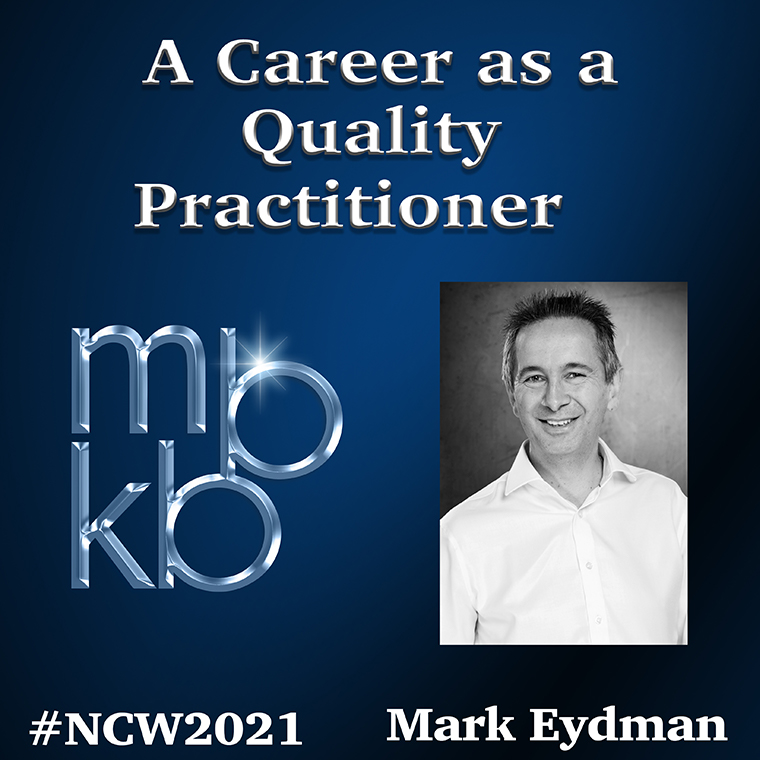25th February 2021
A Career as a Quality Practitioner by Mark Eydman.

What career did you want to work in when you left school?
At school, I really enjoyed the science subjects, especially biology, and was focused on being a vet. Unfortunately, not having studied chemistry, that didn’t work out and I ended up studying Electrical & Electronic Engineering. Not quite the same thing!
What was your first experience of Quality?
As an Engineer, I was very focused on working methodically which was a good foundation for Quality. When I discovered that Quality was also about great Customer Experiences and Employee Engagement, I was hooked.
What made you realise quality was the career for you?
My first formal role in Quality happened completely by accident. A casual conversation with my Managing Director over coffee led to a job offer and acceptance during the same afternoon. I had quite a bit to explain when I got home!
Name 3 great things about working in quality.
Quality lets me see into many different occupations, understand how they operate and help improve work processes and outcomes.
As a Quality Professional, I’ve also been able to visit so many incredible places around the world and see inside a huge range of workplaces from historic monuments to futuristic factories, from military bases to a Krispy Kreme kitchen.
Most importantly though, it is great to spend so much time with people. To let them release their enthusiasm for what they do at work and to jointly celebrate what it achieves.
Reality check
What 3 top tips would you give to someone who wanted a career in quality?
- Develop an enquiring mind, ask “why” and “how” quite a lot, and appreciate that you learn much more from listening than speaking.
- Quality is not just a technical subject, build “soft skills” too around teamwork and communication in particular.
- Be passionate, people notice and will want to engage and give you opportunities!
How can someone get into quality?
The truth is that for many years, Quality has been a discipline that most practitioners drifted into over time through other associated roles. That really is changing and changing fast.
Within many, many organisations, the role of Quality in supporting governance, risk management, reputational protection, business effectiveness, Employee Engagement and Customer Loyalty is being recognised. This is leading to new career development routes to meet these needs including Apprenticeships, modular training, and formal qualifications to Master’s level.
If you want to make a start, let your Employer know. The Chartered Quality Institute (CQI) is a good place for more formal guidance, many CQI volunteers are willing to provide one-off or formal mentoring.
What roles/ company types can do the quality practitioner apprenticeship?
It’s pretty much without limit! If you have a role where you are part of a process, where you add value to a product or a service, you and your organisation can benefit from engaging with Quality.
As an individual, you will find yourself with knowledge and skills that will serve you well whatever future path you take. As a business, what can you lose from more effective operations, more engaged employees, and more loyal customers?




